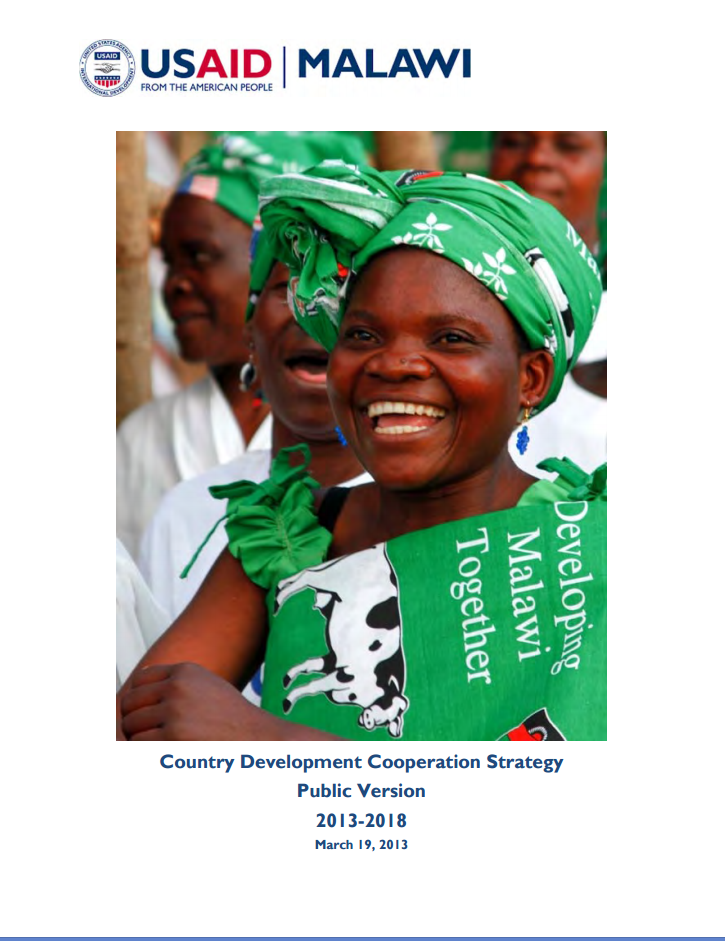Malawi is at a turning point in its young democratic history, with a chance to make major development progress.
Sworn in on April 7, 2012, President Joyce Banda quickly introduced economic and political reform. While the U.S. Government (USG) played a significant and constructive role, it was the government and people of Malawi who reaffirmed their commitment to democratic principles with a peaceful and constitutional succession. Malawi must tackle fundamental governance issues that include corruption, institutional reform, and an inefficient bureaucracy. The current Administration and successive governments will require strong international support—especially from the United States, the largest and most influential donor— to succeed in an ambitious reform agenda and to best address the country's health, education, food security and other socioeconomic needs.
Challenges
Malawi’s development challenges are substantial. Over half the population lives below the poverty line, more than one-third consumes less than the required caloric intake, and 47 percent of children under five are stunted. Malawi’s agriculture-based economy is dominated by rain-fed subsistence maize farming that is particularly vulnerable to periodic droughts. Agriculture represents over 38% of Gross Domestic Product (GDP), and employs over 85% of the labor force. The country's landlocked geography and limited access to ports result in some of the highest transportation costs in the world, amounting to as much as 30% of the total import/export bill. Malawi imports all of its fuel products.
Challenges
The peaceful and constitutional transition to the Presidency by Joyce Banda helped restore donor confidence and budget support which Development Partners (DPs) suspended in 2011.16 Her immediate effort to make considerable economic and governance reforms led to the reinstatement of the Millennium Challenge Corporation (MCC) Malawi compact on June 21, 2012. The International Monetary Fund (IMF) Executive Board approved a new three-year, $156.2 million Extended Credit Facility Program. Other DPs are following suit, reviving budget and development support to the GOM. These fortuitous events underscored Malawi’s position at a historic development crossroads. In addition, the Banda administration has
- Passed an austerity budget;
- Repaired relations with the United Kingdom, a key partner and provider of much-needed GOM budget support, and reestablished relations with Mozambique;
- Succeeded in passing a number of key legislative actions, including repeal of a number of what had been referred to as “bad laws” which barred suits against the government, expanded government’s censorship powers and gave police broad “search and seizure” powers; and
- Obtained passage of a long-delayed Disabilities Bill that had languished in Parliament for eight years. This requires the GOM to guarantee active participation in political life for all persons with disabilities (PWDs) including participation in local government structures and political processes.
Read the full report [pdf]









Comment
Make a general inquiry or suggest an improvement.